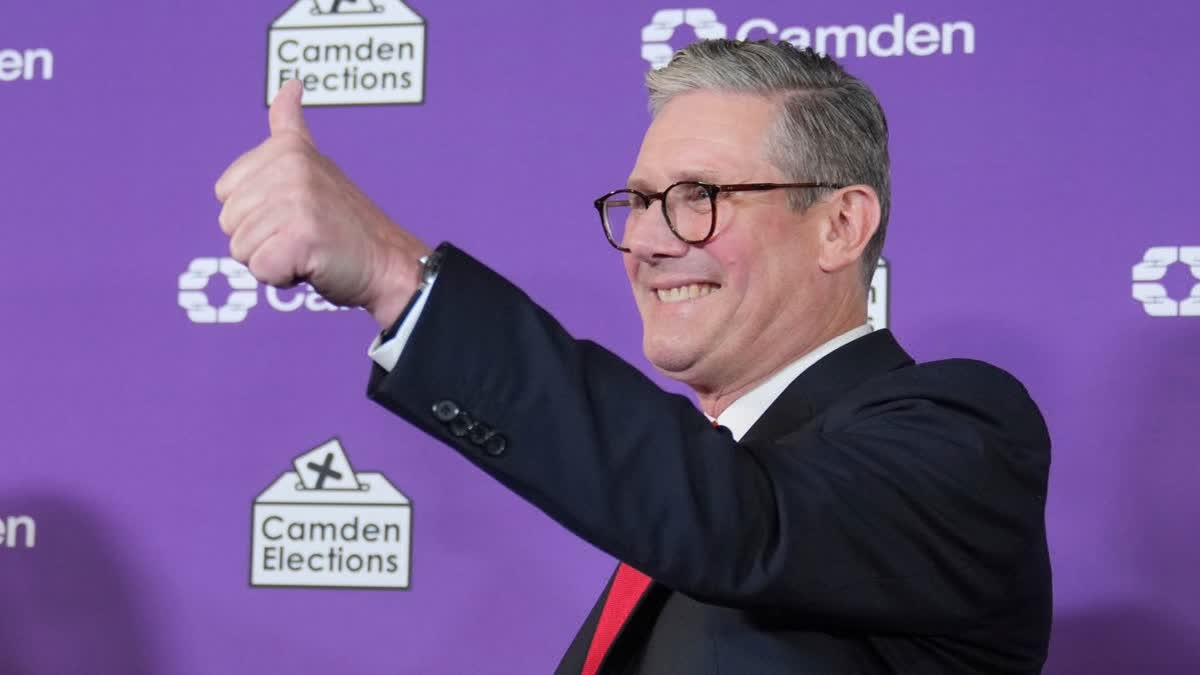London: New British Prime Minister Keir Starmer doesn't get to take a breather. After a draining six-week election campaign, the centre-left politician must get straight to work assembling his government, tackling a mountain of domestic problems and putting his stamp on the U.K.'s relations with the rest of the world.
It's a daunting list for a new leader who has never served in, much less led, a government. But Starmer, who was officially appointed prime minister on Friday, insisted that he is up to the challenge of heading the U.K. in a world that is a more volatile place than it has been for many years.
Appoint a government
Like someone moving into a new home with their IKEA furniture, Starmer's first task was to assemble a Cabinet. Starmer began putting together his government soon after he walked through the door of 10 Downing St. on Friday afternoon following his landslide election victory.
He has a plethora of lawmakers to choose from - his Labour Party won more than 400 seats in Thursday's election, almost two-thirds of the 650 in the House of Commons. Key players in the new administration include Treasury chief Rachel Reeves - a former Bank of England economist and the first woman to hold that job - who will liaise with international financial institutions.
The new foreign secretary, Britain's top diplomat, is David Lammy, a Harvard Law School graduate who vowed to reconnect Britain for our security and prosperity at home.
Make friends on the world stage
Starmer has said his message to the world from the U.K. is: We're back. He wants Britain to take a larger role on the global stage after years of soured relations with Europe over Brexit and the inward-looking U.K. political soap opera that followed. He takes office at a time of multiple crises - including the war in Ukraine and the Middle East, a surging far right, and a muscle-flexing China - that will test the cool head he honed in his former job as Britain's chief prosecutor.
Malcolm Chalmers, deputy director general of the Royal United Services Institute, a military think-tank, said that with France facing a far-right surge in legislative elections and the U.S. embroiled in a polarizing, high-stakes presidential election, Britain has the most stable government of all the major Western democracies.
It therefore has the opportunity, and responsibility, to help steady the ship of Western unity at a time of exceptional political fluidity, he said. Starmer is set to make a high-profile international debut next week when he is expected to attend NATO's 75th-anniversary summit in Washington.
The gathering is overshadowed by questions about President Joe Biden's fitness and the uncertain outcome of the November U.S. presidential election.
Starmer has said there will be no change to Britain's staunch support for Ukraine and has pledged to increase U.K. military spending to 2.5% of GDP - though he hasn't put a date on it.
The decision for Starmer is how much to try to persuade the U.S. -- as well as other wavering members of NATO - to remain a defender of Ukraine, on the grounds not just of sovereignty but European security, said Bronwen Maddox, director of international affairs think-tank Chatham House.
